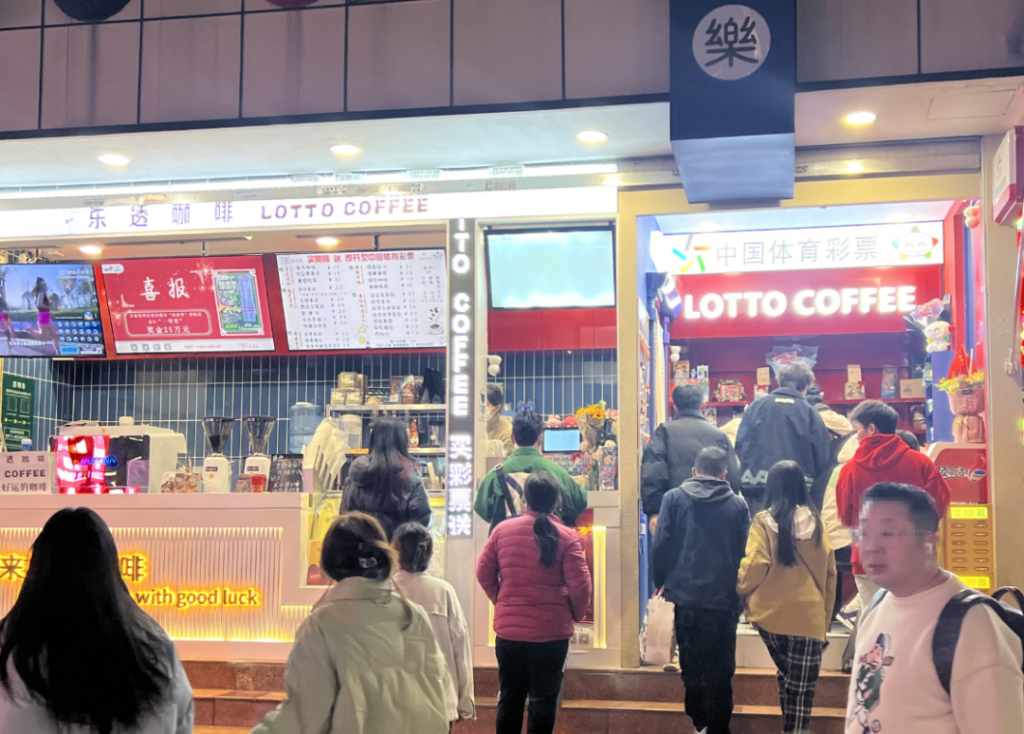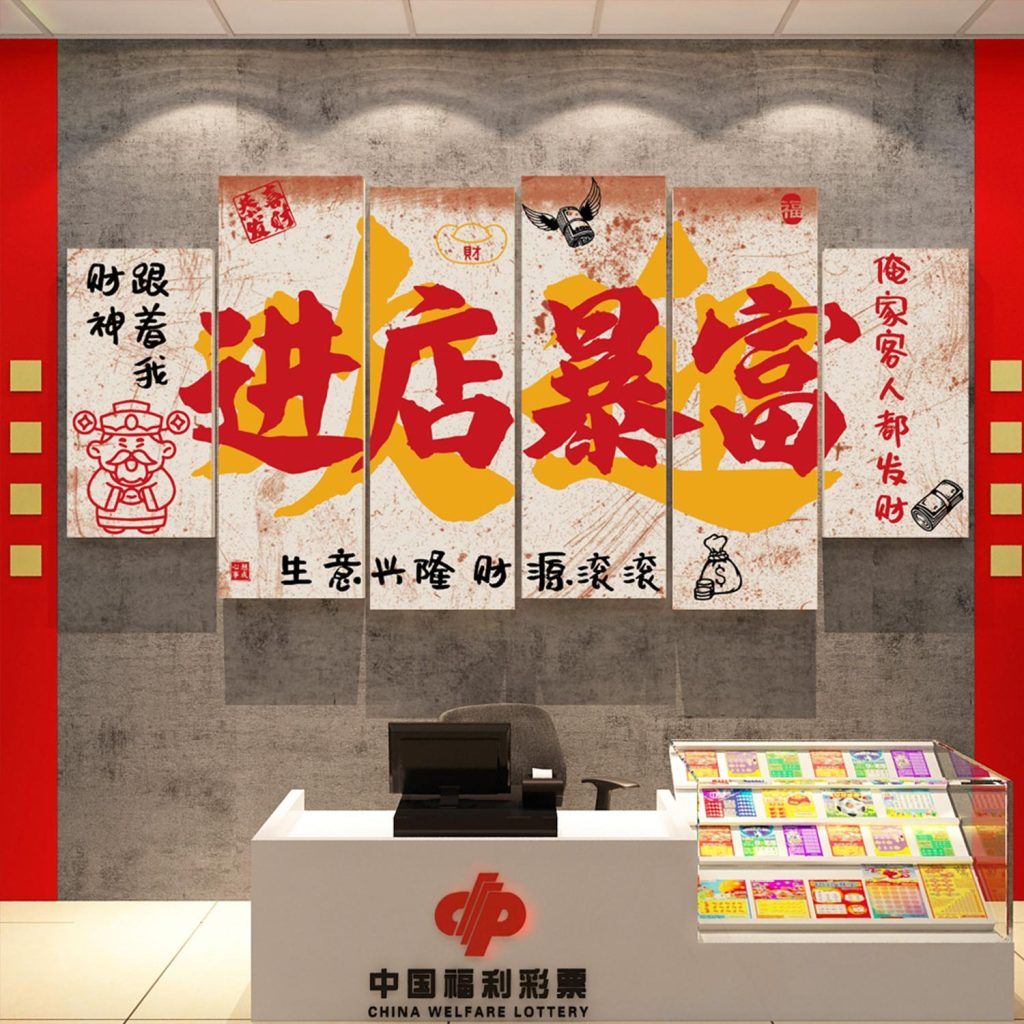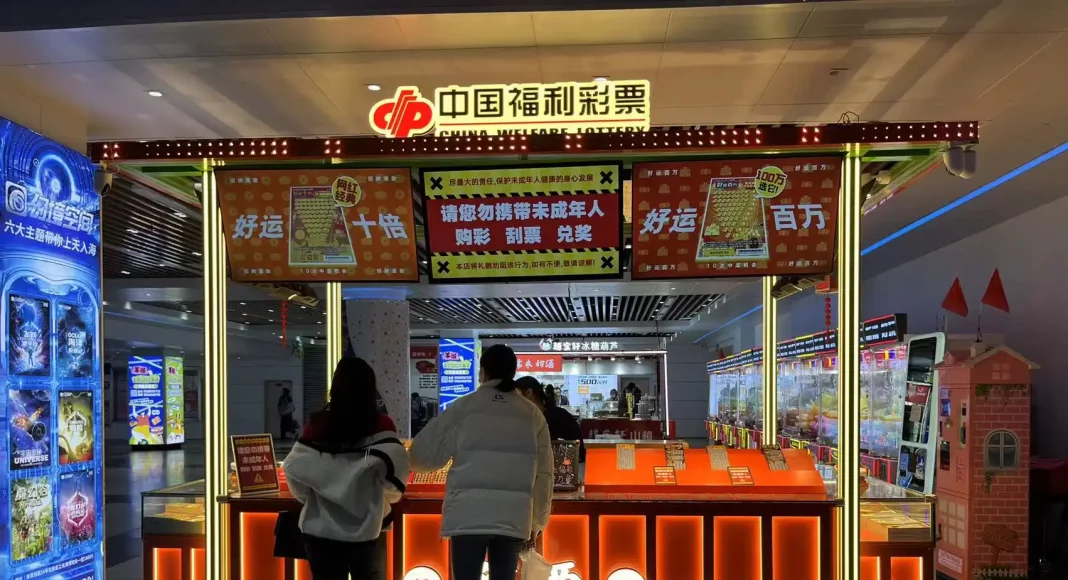The Chinese government is closely monitoring the rapidly expanding lottery market, with many highly addictive lotteries being banned from sale in recent regulatory shift.

According to a study conducted by He Hui, a scholar from the University of the Chinese Academy of Social Sciences, authorities have implemented a series of restrictions on many types of lotteries exhibiting characteristics such as being ‘highly addictive’, causing ‘significant social side effects,’ and generating ‘substantial sales.’
The scholar notes that China’s stance on lotteries has evolved as the country has already established its social security network, resulting in reduced financial dependency.
Consequently, China has introduced stricter regulations on the lottery industry. Since 2019, China has issued a set of rules governing ‘guessing lotteries’, ‘high-frequency fast-opening lotteries’, and ‘video lotteries’.
China’s lottery market operates under a duopoly, with only two lottery companies allowed to operate: China Welfare Lottery and Sports Lottery. The Ministry of Finance is the main regulatory authority for lotteries.
The study, “Product Regulations in the Mainland Lottery Market Since 2019: Characteristics and Impacts,” was published in Global Gaming & Tourism Research, an academic publication of Macao Polytechnic University.
In the paper, He Hui highlights that lotteries have been identified as one of the sources of problematic gambling in the country. Lottery products with strong appeal may induce consumers to purchase tickets irrationally under certain conditions, resulting in negative externalities and adverse social impacts.
‘Since the introduction of the video lottery “Zhongfu Online”(from the Welfare Lottery), it has garnered significant consumer interest and is highly addictive due to its video interface, similarity to electronic games, high lottery draw frequency, extremely convenient payment methods, and favorable consumption environment. It is even regarded as a disguised ‘slot machine.’
He indicates that the government’s regulatory goal for lottery products is to promote the healthy development of the lottery industry and raise public welfare funds, while at the same time controlling the type and structure of lottery games so that they will not have a large negative social impact.
In some regulatory push, the government aims to end big bet, proxy bet, or irrational betting behaviors. Some types of lotteries could return to the market after changing the betting rules.
The scholar indicates that the Ministry of Finance’s goals and ideas for regulating lottery products are to optimize lottery varieties and game structures, prevent irrational betting from causing social problems, further highlight the public welfare attributes and social responsibilities of the national lottery; advocate healthy lottery varieties, support the development and launch of games that are ‘less exciting,’ ‘less addictive,’ and ‘more fun,’ and promote rational and healthy lottery purchasing behavior.

China regulatory focus shift
The same study also finds that there has been a focus shift in the regulatory framework since 2019.
Before 2019, government regulations on the lottery market mainly focused on institutional mechanisms. Since 2019, they have focused on product regulation at the micro level. The scope and fields of regulation have become ‘more comprehensive,’ and regulatory tools have become ‘more diversified and refined.’
Meanwhile, starting from the restrictions on the Internet lottery in 2015, especially since 2019, the government’s regulation of the lottery has become stricter and stricter.
‘Its regulatory goals no longer pursue sales volume and development speed, but pay more attention to the development of lottery types with lower gaming characteristics.’
‘Judging from the changes in the product structure of the lottery market and the gradual recovery of lottery sales in the past two years, the policy objectives have been basically achieved.’
However, the study points out that the realization of regulatory goals also comes with certain social costs. The implementation of regulatory policies put great pressure on lottery operators in a short period of time. Some sales outlets even stopped operating due to too much operating pressure, which, in turn, had a certain impact on the stability of the lottery market.

Big fluctuation
Some of the lotteries had a big market share, which led to significant fluctuations in sales after the new regulation was issued. He Hui notes that “high-frequency fast-opening lotteries and video-based lotteries are the most attractive to lottery buyers and are most likely to trigger irrational lottery purchases. These two lotteries account for about 45 percent of total lottery sales. Both types of games will be delisted from 2020 to 2021, and sales will be reduced to zero.
The conclusion drawn is that the structure of lottery sales is strongly influenced by the regulatory framework.

Younger buyers
Mainland lottery operators are working on attracting the attention of more young people through the expansion of sales channels and marketing innovation of lottery agencies.
The paper mentions that ‘for a long time, urban young people have not accounted for a high proportion of lottery purchasers in the mainland lottery market. This is not only related to the high education level of urban young people and their rational understanding of the probability of winning the lottery but also to the fact that existing lottery sales outlets are outside the main commercial areas. The decoration and furnishings of the outlets are not fashionable enough, making it difficult to attract young people.’
Since 2019, lottery agencies have increased the expansion of sales channels by opening ‘fashionable lottery stores’ in bustling commercial districts and commercial complexes in the city, setting up lottery sales points at exhibitions, tourist spots, etc.
The development of this trend will likely change the age structure characteristics of lottery purchasers and make lottery players younger.
According to official data, Chinese lottery sales increased by 36.5 percent in 2023, with lottery revenue reaching RMB580 billion ($80.1 billion). The sales of the Welfare Lottery were RMB194 billion ($26.9 billion), an increase of 31.3% year-on-year, while the sales of the Sports Lottery were RMB 385 billion ($53.2 billion), reflecting a 39.3 percent year-on-year increase.











